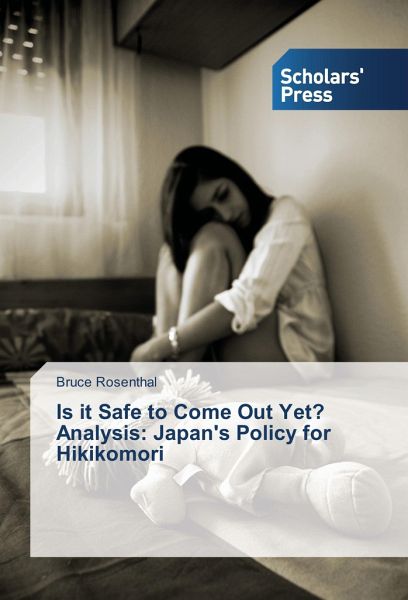
Is it Safe to Come Out Yet? Analysis: Japan's Policy for Hikikomori
Versandkostenfrei!
Versandfertig in 6-10 Tagen
82,99 €
inkl. MwSt.

PAYBACK Punkte
41 °P sammeln!
Hikikomori is a behavioral syndrome, which has appeared among Japan's adolescents over the last twenty years. The main symptom of hikikomori (hee-kee-koh-MOH-ree) is for young men and women to either virtually or literally lock themselves away in their rooms for months, years or even sometimes decades at a time, with minimal social contact. While there have been a number of important scholarly works on the causes, treatments, and consequences of hikikomori, there is a lack of detailed research looking at the syndrome in the context of Japanese health care policy. In response to the gap in the ...
Hikikomori is a behavioral syndrome, which has appeared among Japan's adolescents over the last twenty years. The main symptom of hikikomori (hee-kee-koh-MOH-ree) is for young men and women to either virtually or literally lock themselves away in their rooms for months, years or even sometimes decades at a time, with minimal social contact. While there have been a number of important scholarly works on the causes, treatments, and consequences of hikikomori, there is a lack of detailed research looking at the syndrome in the context of Japanese health care policy. In response to the gap in the literature, this book discusses several critical dimensions of the Japanese health policy response to hikikomori. For Japanologists, this book will provide one more window into the nature of modern Japanese society, without the prejudices that are sometimes apparent in more popular treatises on the syndrome. For health policy analysts this book should provide another example of a government creating and enacting a health policy initiative - and any fresh example should add to our knowledge of how policy works in the 'real world'.














